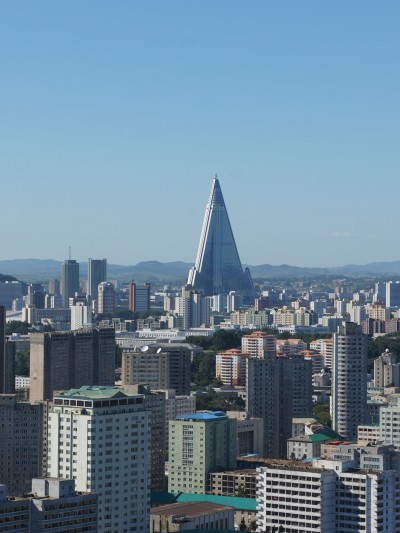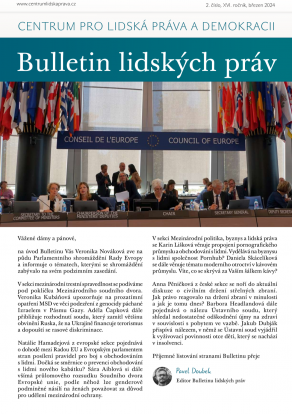In recent months North Korea and the United States have launched a process to reconcile some of the differences existing between their political cultures. More specifically, the overarching goal of the US in the summit is the nuclear disarmament of North Korea.
North Korea – United States Summit
The attempt to disarm is a step in the right direction when dealing with Supreme Leader Kim Jong-Un of the Democratic People’s Republic of Korea, but it is of vital important to consider his optics; what does North Korea Want?
As a result of the historical meeting with President Trump and one of the world’s superpowers at the first summit meeting occuring on June 12, 2018 in Singapore, Kim Jong-Un and his cohorts gain a small amount of international recognition, and through this the argument could be made, inadvertent acceptance and even legitimacy. However, is this what the US and the international community wanted – acceptance and recognition of one of the world’s most authoritarian regimes that has committed countless human rights violations against its own citizens?
Kim Jong-Un has been accused by the United Nations Commission of Inquiry of crimes against humanity, murder, extermination, torture, rape, enslavement and forced abortion among other atrocities. The UN Security Council has consecutively named North Korea “as a threat to international peace and security.” Therefore, it is important to remember, even if disarming is a step in the right direction, the countless number of human rights violations that have occurred should not be ignored.
The Violations of Human Rights
One of the most basic human rights is access to food and water and the fundamental ability to survive. As reported by Brookings Institute, “According to the United Nations Food and Agriculture Organization… as many as 7.6 million North Koreans, or 31 percent of the population… were estimated to be ‘undernourished’ from 2011 to 2013.” The New York Times, today, places that number even higher, stating that in North Korea there are over 10.5 million undernourished people.
Furthermore, 28 percent of those under five have stunted growth. Additionally, according to Reuters, 60,000 North Korean children face the possibility of starvation. Moreover, as a form of torture, North Korea has even used prolonged starvation. Sadly, the citizens of North Korea do not have the ability to ask for help as they are banned from communicating with the outside world and will be severely punished if they attempt to do so.
The North Korean government controls virtually every aspect of life in the country. Complete devotion to the Kim family is expected of the citizens and through a surveillance network, the state spies and monitors the activities of its citizens. Furthermore, the state controls the media, thus choosing with what and how to inform their citizens. Religious freedom does not exist and forced labor is a common form of punishment.
The prison camps are arguably the most detrimental of the violations. Political crimes are considered among the worst in North Korea. Those arrested for committing these crimes do not receive a trial or due process. They are simply sent to prison camps without any notification sent to the family. Sometimes the entire family is arrested and sent to the camps due to “guilt by association” and the “wrong thought” in their family.
A United Nations report discovered that in 2014, there were approximately 120,000 inmates in the four major North Korean prisons for political prisoners, with close to 200,000 prisoners for all crimes nationwide. Similarly, a government agency from South Korea, “The Korea Institute for National Unification,” estimates that 80,000-120,000 people are imprisoned today. According to this agency, this is lower than a decade earlier, when there were between 150,000-200,000 people imprisoned. In these camps the prisoners are forced to work, starved, raped, tortured and executed. According to Amnesty International, more than 400,000 prisoners have died since the 1950s when it is thought the camps began.
Much of the information that the outside world has obtained regarding the prison camps is denied by North Korea. However, more and more prisoners escape and have horrifying stories to tell. According to Paul Szoldra of Business Insider and former prisoners, the conditions in the prisons are so detrimental that around 20-25% of the prison population dies every year. Many of the prisoners are born and live their entire life in the camps with no knowledge of the outside world or even North Korea outside of the camp walls. Very few ultimately escape. This is because when one is caught escaping, said person is executed in front of the entire camp. Sometimes, family members are tortured for others attempting to escape. For example, one person who escaped told a story of his mom and brother being accused of attempting to escape. This person was then hung by his ankles and tortured with fire as a result of his family members attempting to escape. There also exists extreme starvation in the camps with prisoners so hungry they resort to eating rats and insects to survive.
Though none of the previously mentioned violations were thoroughly examined in this short article, the goal was to simply raise further awareness and make sure that the world has not forgotten and does not forget the atrocities promulgated by this regime. For the first time in history, the outside community is beginning to meet with North Korea. Though their past itinerary focused on nuclear disarmament and future meetings probably will as well, it is very important to remember the atrocities North Korea has committed against its citizens. If the world is not careful when meeting with North Korea and does not address the human rights violations, they could inadvertently be legitimized.
References
Atwood, Kylie. “North Korean prison camps exposed to State Dept.” CBS News. August 30, 2017. Accessed July 12, 2018. https://www.cbsnews.com/news/state-department-report-exposes-north-korean-prison-camps/.
Cohen, Roberta. “World Food Day: The Challenge of North Korea.” Brookings Institute. October 8, 2013. Accessed August 22, 2018. https://www.brookings.edu/opinions/world-food-day-the-challenge-of-nort….
Kristof, Nicholas. “North Korea, Trump and Human Rights.” The New York Times. June 9, 2018. Accessed July 10, 2018. https://www.nytimes.com/2018/06/09/opinion/sunday/north-korea-human-rights.html.
Nebehay, Stephanie. “60,000 North Korean children may starve, sanctions slow aid: UNICEF. January 30, 2018. Accessed July 12, 2018. https://www.reuters.com/article/us-northkorea-missiles-un-children/60000-north-korean-children-may-starve-sanctions-slow-aid-unicef-idUSKBN1FJ1FL.
“North Korea 2017/2018.” Amnesty International. Accessed. July 12, 2018. https://www.amnesty.org/en/countries/asia-and-the-pacific/north-korea/report-korea-democratic-peoples-republic-of/.
“North Korea Events of 2017.” Human Rights Watch. Accessed July 9, 2018. https://www.hrw.org/world-report/2018/country-chapters/north-korea.
“North Korea’s human rights: What Trump and Kim won’t talk about.” BBC News. June 3, 2018. Accessed July 10, 2018. https://www.bbc.com/news/world-asia-44234505.
Park, Kee B. “Hunger in North Korea is Devastating. And It’s Our Fault.” The New York Times. December 17, 2017. Accessed July 9, 2018. https://www.nytimes.com/2017/12/17/opinion/weapons-north-korea-hunger.html.
Reality Check Team. “North Korea: How many political prisoners are detained in prison?” BBC News. May 10, 2018. Accessed July 12, 2018. https://www.bbc.com/news/world-asia-44069749.
Salam, Maya and Matthew Haag. “Atrocities Under Kin Jong-un: Indoctrination, Prison Gulags, Executions.” The New York Times. June 11, 2018. Accessed July 9, 2018. ttps://www.nytimes.com/2018/06/11/world/asia/north-korea-human-rights.html.
Szoldra, Paul. “The stories from inside North Korea’s prison camps are horrifying.” Business Insider. March 24, 2017. Accessed July 10, 2018. http://www.businessinsider.com/un-north-korea-prison-camp-2017-3#and-women-arent-afforded-any-leniency-12.
Photograph
View of the city. Pyongyang City - Ryugyong Hotel in Background (13913572409), author: Uri Tours, 31. srpen 2013, source: Wikimedia Commons, CC BY-SA 2.0, edits: cropped.


